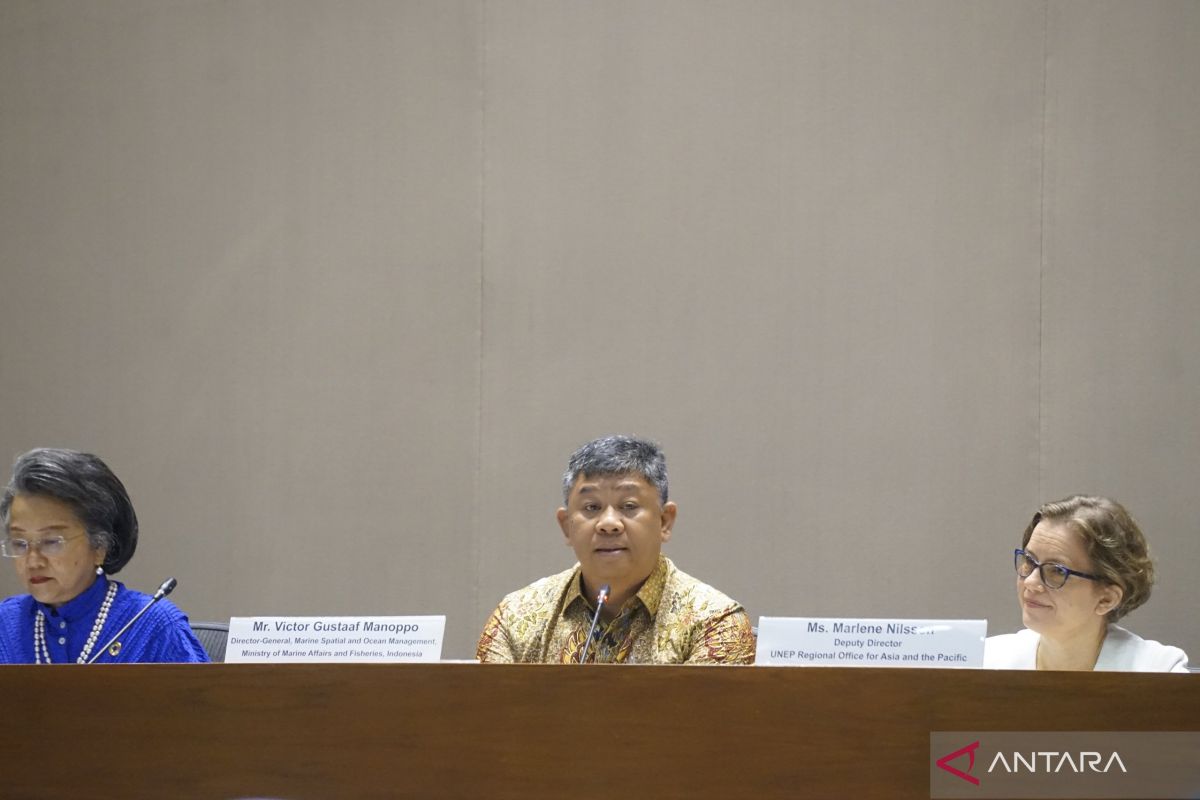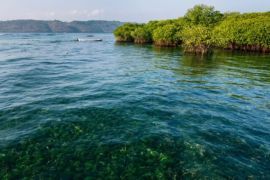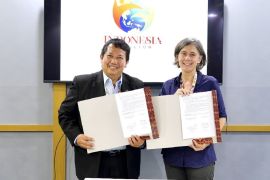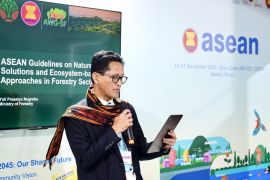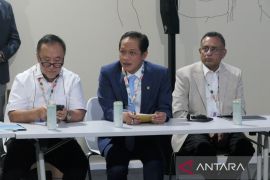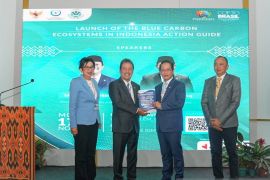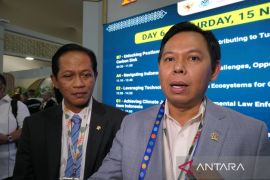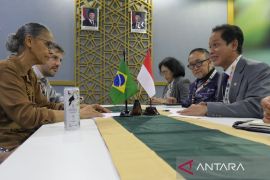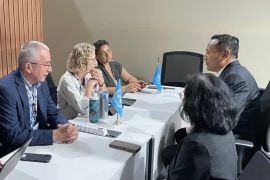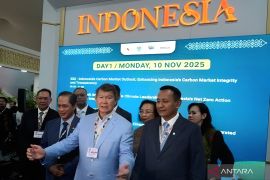Ocean-based climate action offers opportunities to strengthen environmental and social resilience as well as support the economic sustainability of coastal communities, Marine Affairs and Fisheries Ministry's Director General of Marine and Marine Space Management Victor Gustaaf Manoppo said.
"Indonesia believes that optimizing the role of the ocean in mitigating climate change in this region can create solutions that have a positive impact on future generations and strengthen efforts to accelerate the implementation of the Sustainable Development Goals, especially SDG 13 (Climate Action) and SDG 14 (Life Below Water)," he said in a statement released on Wednesday.
As part of the OBCA, Indonesia is working with other island nations, including Fiji and the Maldives, in drafting a joint resolution to accelerate ocean-based climate action at the international level, he informed.
In 2023, he noted, Indonesia participated in initiating Resolution 79/2 of the United Nations Economic and Social Commission for Asia and the Pacific (UNESCAP).
The resolution aims to strengthen the commitment of member countries to protect and preserve marine resources as part of climate change mitigation efforts, he said.
According to Manoppo, Indonesia, as the world's largest archipelagic country, has reaffirmed its commitment to playing an important role in the global agenda.
On the sidelines of the OBCA agenda, he led the Indonesian delegation during a bilateral meeting with UNESCAP to discuss important issues related to the country's marine and climate policies and the potential for international cooperation.
At the meeting, he outlined five priorities for marine programs, including the target of increasing marine conservation areas.
So far, Indonesia has succeeded in achieving around 10 percent of the total target with the help of a comprehensive national strategy.
Meanwhile, UNESCAP Executive Secretary Armida Salsiah Alisjahbana emphasized that marine issues are cross-border so they require close cooperation at the regional level.
"It is hoped that Indonesia can play a role as a leader in cooperation between countries, especially in pillar 1 and pillar 4 discussed in this Regional Dialogue, including South-South Cooperation and collaboration with other partner countries," she said.
Related news: Ministry promotes green building concept on World Habitat Day
Related news: Climate change threatens small islands in West Nusa Tenggara
Translator: Sinta Ambarwati, Yashinta Difa
Editor: Rahmad Nasution
Copyright © ANTARA 2024
